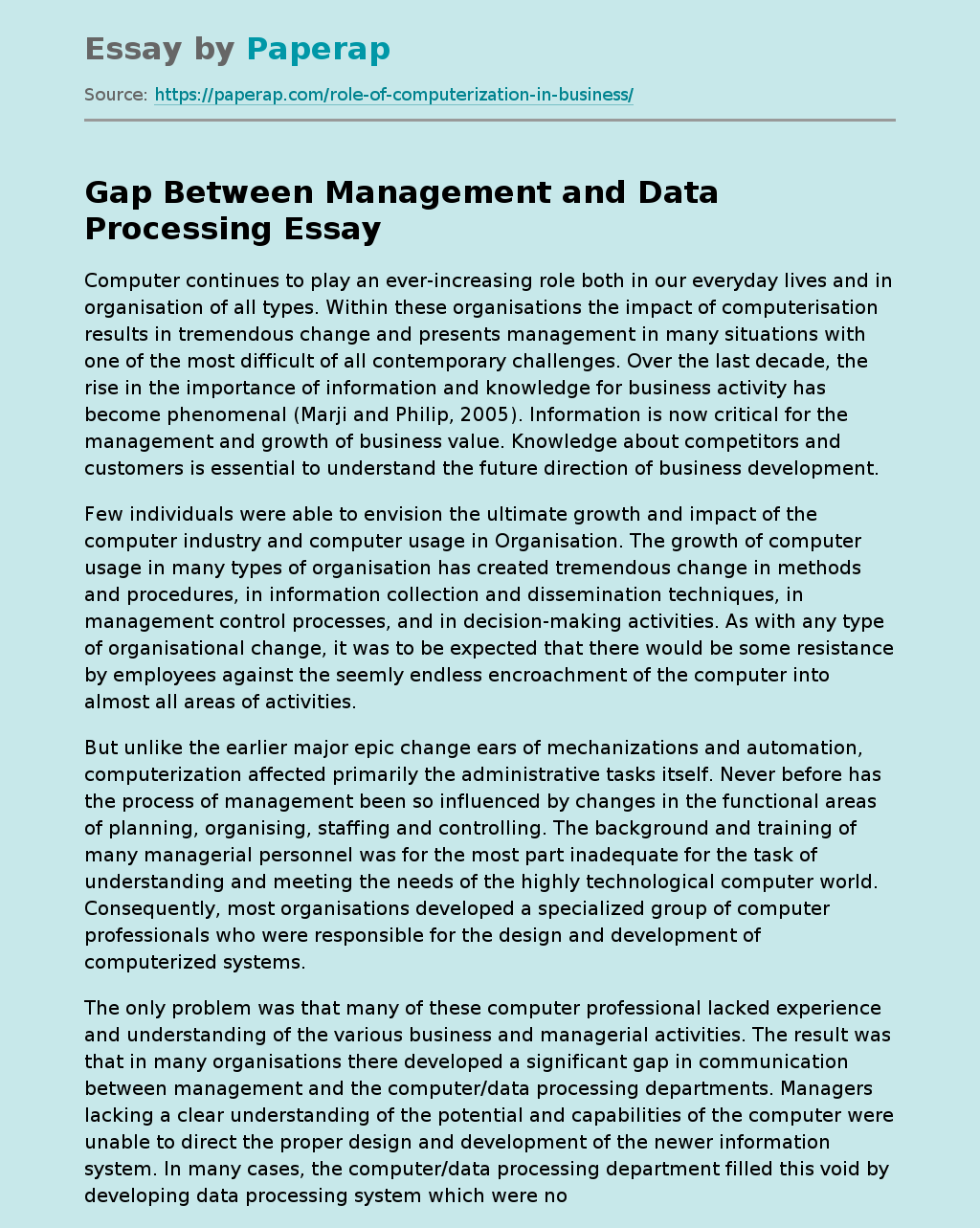Gap Between Management and Data Processing
Computer continues to play an ever-increasing role both in our everyday lives and in organisation of all types. Within these organisations the impact of computerisation results in tremendous change and presents management in many situations with one of the most difficult of all contemporary challenges. Over the last decade, the rise in the importance of information and knowledge for business activity has become phenomenal (Marji and Philip, 2005). Information is now critical for the management and growth of business value. Knowledge about competitors and customers is essential to understand the future direction of business development.
Few individuals were able to envision the ultimate growth and impact of the computer industry and computer usage in Organisation. The growth of computer usage in many types of organisation has created tremendous change in methods and procedures, in information collection and dissemination techniques, in management control processes, and in decision-making activities. As with any type of organisational change, it was to be expected that there would be some resistance by employees against the seemly endless encroachment of the computer into almost all areas of activities.
But unlike the earlier major epic change ears of mechanizations and automation, computerization affected primarily the administrative tasks itself. Never before has the process of management been so influenced by changes in the functional areas of planning, organising, staffing and controlling. The background and training of many managerial personnel was for the most part inadequate for the task of understanding and meeting the needs of the highly technological computer world. Consequently, most organisations developed a specialized group of computer professionals who were responsible for the design and development of computerized systems.
The only problem was that many of these computer professional lacked experience and understanding of the various business and managerial activities. The result was that in many organisations there developed a significant gap in communication between management and the computer/data processing departments. Managers lacking a clear understanding of the potential and capabilities of the computer were unable to direct the proper design and development of the newer information system. In many cases, the computer/data processing department filled this void by developing data processing system which were not “user-oriented.
The presence and significance of this communication gap has been somewhat alleviated during the past decade. The aim of this research is to gain insight into the broad impact resulting from the use of computers in contemporary organisations. This study will examine these impacts in the light of their effect on managers and their work and on the techniques and processes that are used in decision making. In addition this research will take a look at the capabilities and limitation of computer as they are used in the design and development of modern information system.
Gap Between Management and Data Processing. (2019, Dec 05). Retrieved from https://paperap.com/role-of-computerization-in-business/

